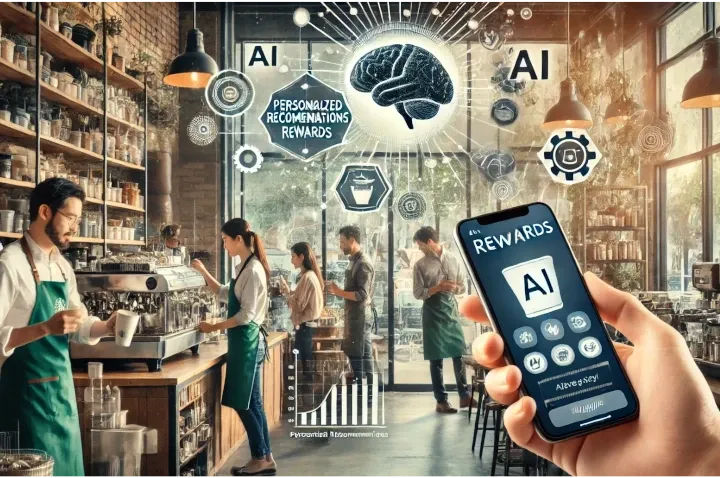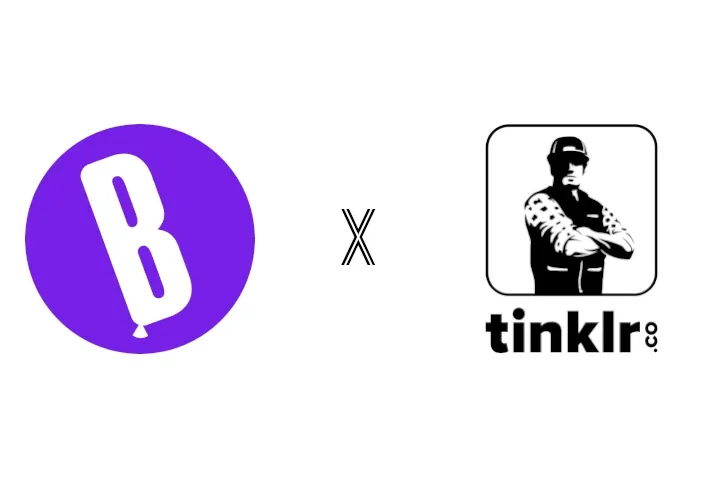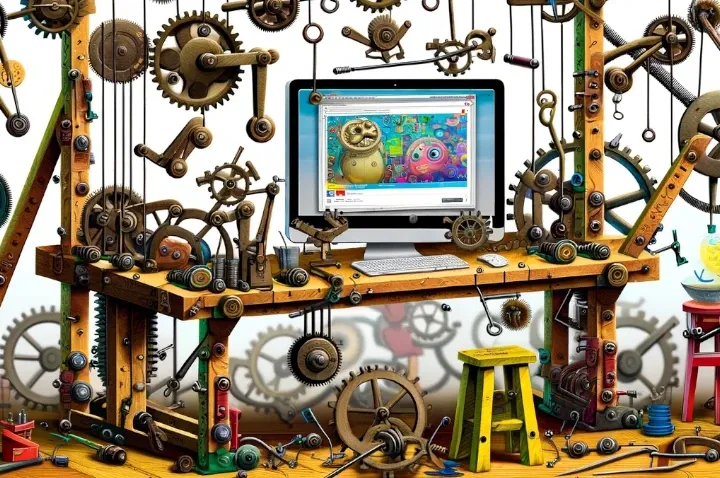Starbucks Loyalty App - Understand AI Secrets To Boost Your Business
Starbucks is more than a global coffeehouse; it’s a mega brand and a cultural phenomenon that has revolutionized how people enjoy coffee and now Starbucks is embracing AI to refine and enhance its operations.

Starbucks and AI : A Perfect Blend
Starbucks is more than a global coffeehouse; it’s a mega brand and a cultural phenomenon that has revolutionized how people enjoy coffee and interact with their local coffee shops. Today, Starbucks operates over 34,000 stores across more than 80 markets worldwide, serving millions of customers each day—a far cry from its humble beginnings as a single café in Seattle’s Pike Place Market.
The brand's expansion has been driven by its commitment to quality, innovation, and a unique customer experience. In the AI era, these commitments remain steadfast, with Starbucks embracing AI to refine and enhance its operations. Here’s how this refreshing business model can inspire any entrepreneur:
1. AI and Personalizing Customer Experiences
Starbucks uses AI to deliver a highly personalized experience to its customers, primarily through the Starbucks Rewards mobile app and loyalty program.
Starbucks Rewards analyzes individual customer data, including purchase history, preferences, and behavior patterns. For instance, if a customer frequently orders caramel macchiatos, the app will suggest similar drinks or offer promotions on caramel-flavored items. This tailored approach extends to predicting when customers might crave certain items, like suggesting a pumpkin spice latte as the weather cools.
The AI learns from customer interactions, continually refining its recommendations. This personalized touch fosters loyalty, as customers feel that Starbucks truly understands their preferences.
For Small Businesses:
Any small business can offer personalized touches to its customer services. For example, an online boutique could use AI to analyze customer purchase history and browsing behavior, offering personalized shopping suggestions and product recommendations. If a customer frequently buys summer dresses, the AI could suggest similar styles or accessories.
Personalized recommendations increase the likelihood of repeat purchases and boost customer satisfaction. Customers are more likely to engage with businesses that understand their preferences and needs, leading to higher loyalty and lifetime value.
2. AI and Dynamic Menu Offerings
AI enables Starbucks to adjust its menu and pricing dynamically, responding to various factors such as time of day, local demand, and seasonal trends.
For example, during the morning rush, Starbucks might highlight popular breakfast items and energizing coffee blends to cater to commuters. In contrast, afternoon menus might emphasize snacks and lighter beverages.
AI-driven pricing strategies can also optimize profitability by adjusting prices in real time. During quieter periods, the AI might lower prices on certain items to attract more customers or offer limited-time discounts to stimulate sales. This dynamic approach ensures that Starbucks remains relevant and appealing while also maximizing revenue and customer satisfaction.
For Small Businesses:
Smaller businesses can also adapt their offerings to align with changing seasons or timings that impact consumer behavior. Even the smallest restaurant or café could use AI to adjust its menu based on seasonal ingredients and customer preferences.
During summer, AI tools might highlight fresh, cool salads and refreshing beverages, while in winter, they might promote hearty soups and warm drinks.
By adapting to seasonal trends, businesses can keep their offerings fresh and relevant, attracting more customers. This flexibility helps in managing inventory effectively and reducing waste, as products align closely with current demand.
3. AI-Driven Marketing
AI has been a game-changer in the online marketing space, and Starbucks is no exception when it comes to leveraging the technology to craft targeted and effective marketing campaigns.
By analyzing customer data and purchasing behaviors, AI tools specifically designed to support online marketing efforts can segment customers into specific groups and deliver personalized marketing messages. For example, if the AI identifies a customer as a frequent buyer of iced drinks, it might send them promotions for new cold beverage offerings or suggest complementary snacks.
For Small Businesses:
Any small business can enhance its promotional efforts using a range of AI tools to simplify the online marketing process. For example, a local fitness studio could use AI-driven marketing tools to target promotions to specific customer segments. Using AI tools, the studio owner might analyze attendance patterns and send personalized class recommendations or discounts to encourage less frequent visitors to return.
AI enables precise targeting and real-time adjustments, making marketing campaigns more effective and cost-efficient. This results in higher engagement rates and better return on investment, as customers receive offers that are timely and relevant to their interests.
As you can see, there’s a lot to get right when it comes to online marketing, which is why Balloonary exists—to empower smaller businesses to have the same advantages as big brands when it comes to their creative, strategic marketing efforts.
By leveraging AI, small businesses can enhance their customer experience, adapt quickly to changing demands, and optimize their marketing efforts. Starbucks’ innovative use of AI provides a blueprint for how technology can drive business success at any scale. Embracing AI can empower small businesses to compete more effectively and deliver exceptional value to their customers.

Trademark Disclaimer
All trademarks and brand names are the property of their respective owners. All company, product and service names used in this post are for identification purposes only. Use of these names, trademarks and brands does not imply endorsement.




